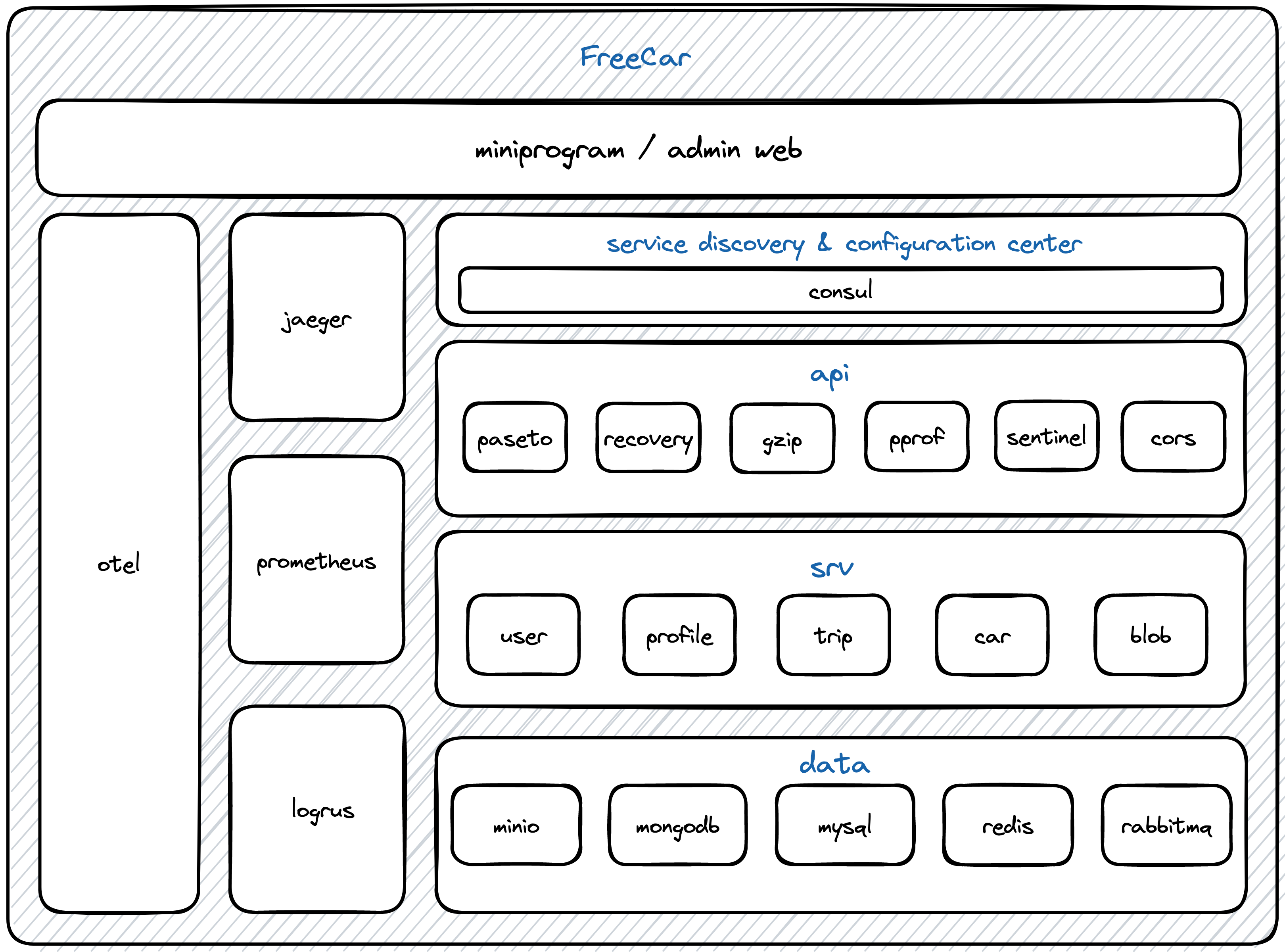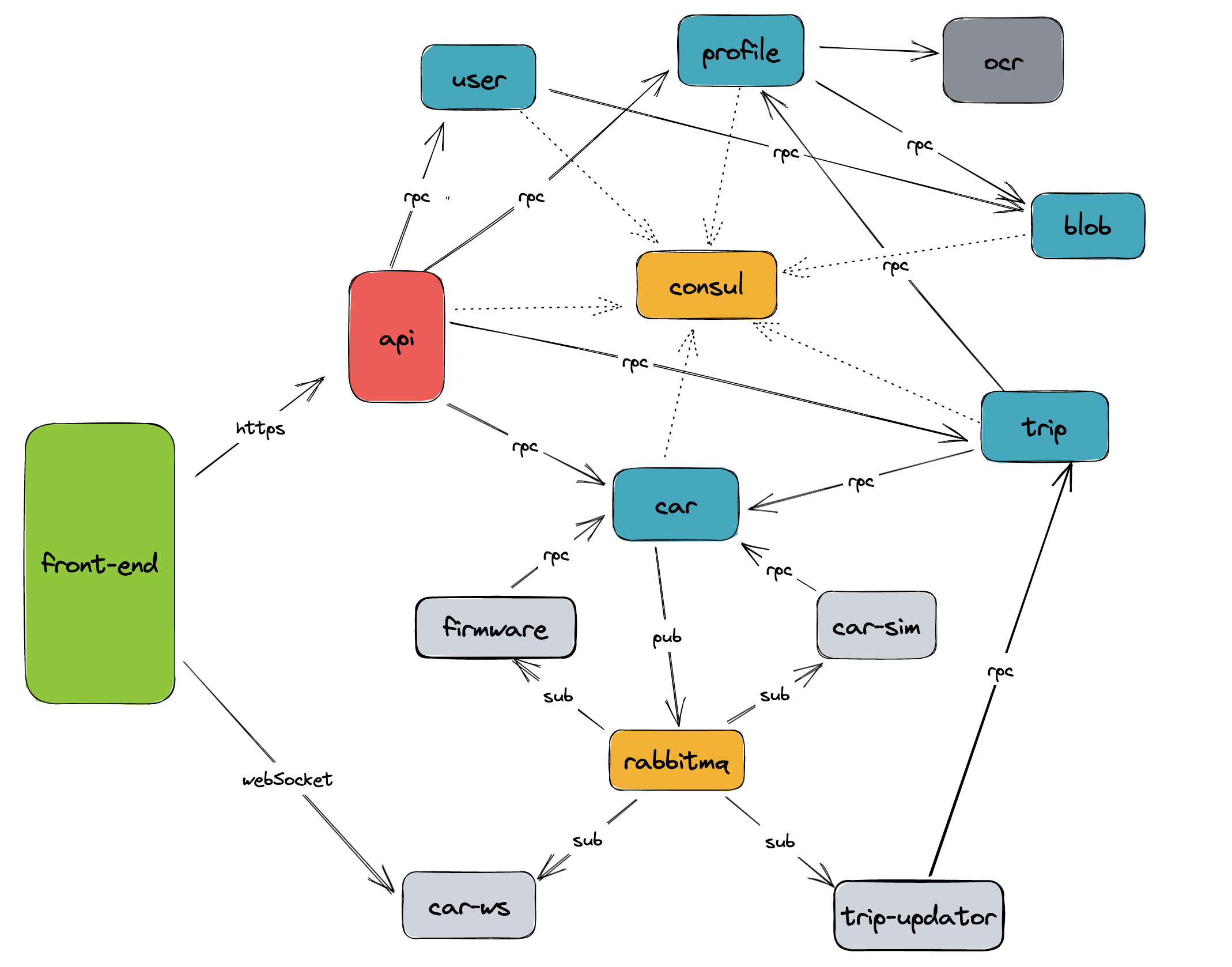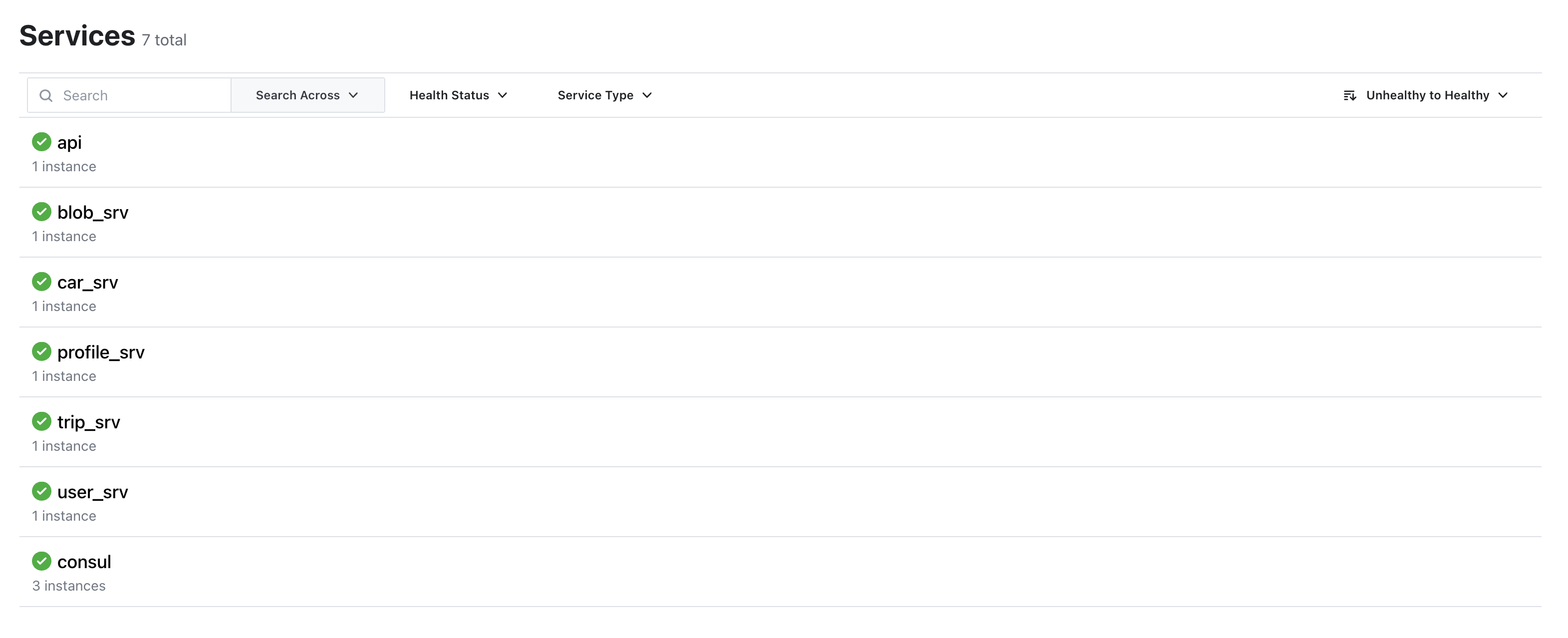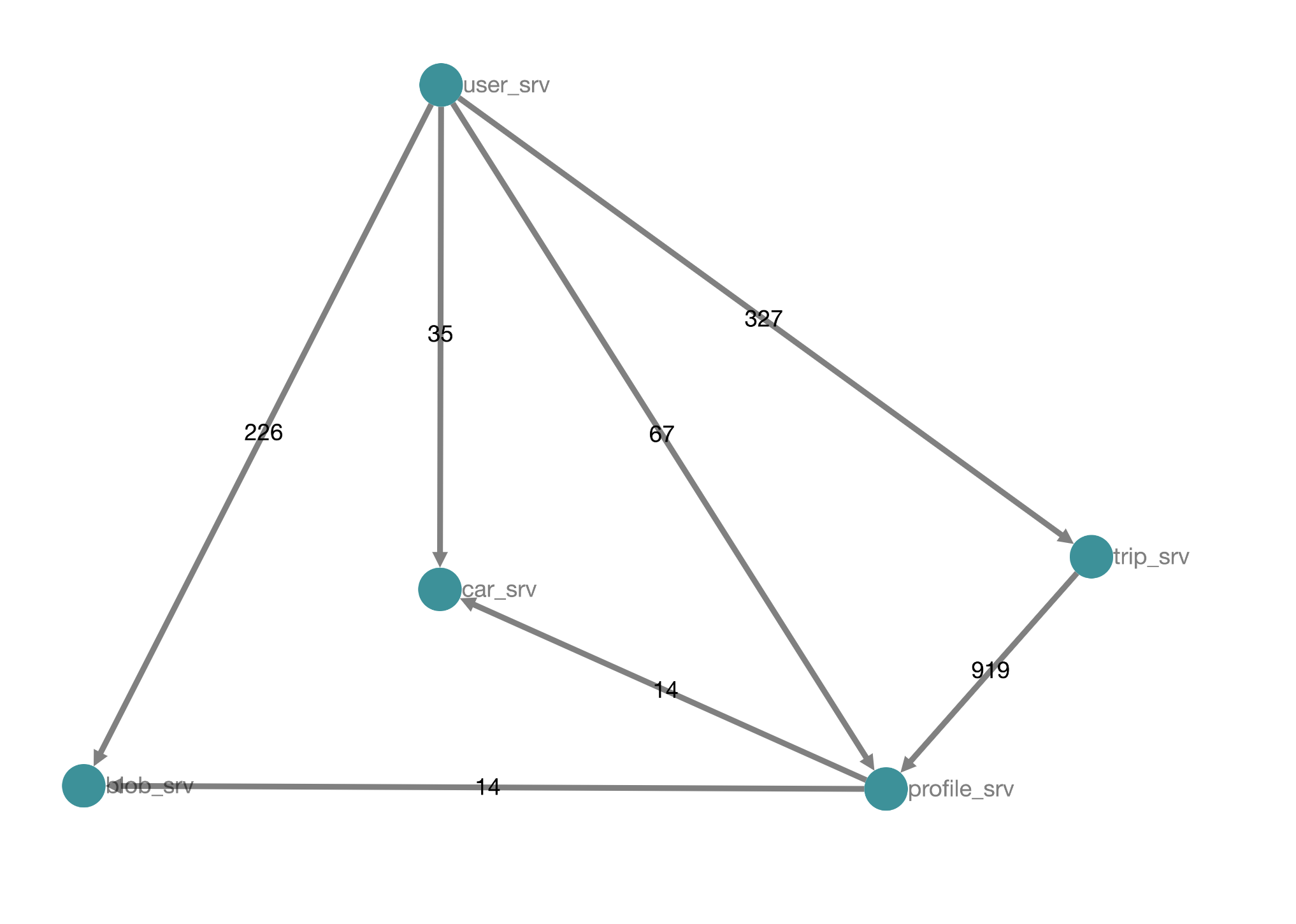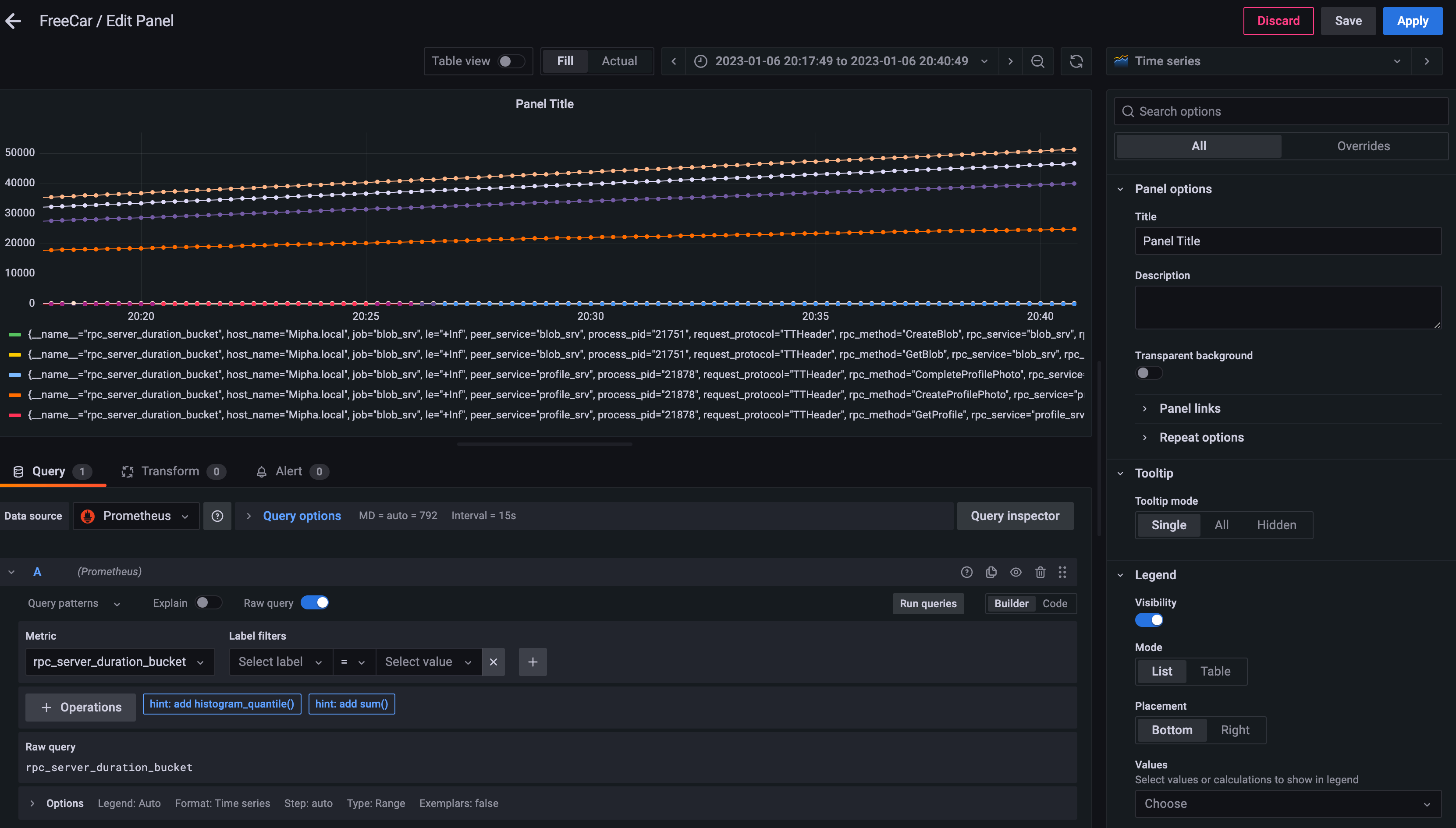English | 中文
FreeCar is a cloud-native time-sharing car rental system suite based on Hertz and Kitex.
| Function | Implementation |
|---|---|
| HTTP Framework | Hertz |
| RPC Framework | Kitex |
| Database | MongoDB, MySQL, Redis |
| Authentication | Paseto |
| Service Discovery and Configuration Center | Consul |
| Message Queue | RabbitMQ |
| Service Governance | OpenTelemetry |
| Current Limiting Fuse | Sentinel |
| Object Storage | Minio |
| Image Recognition | Baidu OCR |
| CI | GitHub Actions |
Small program terminal address FreeCar-MP
Background management terminal address TODO
| Catalog | Introduction |
|---|---|
| Cmd | Project Core |
| Idl | IDL file for all services of the project |
| Shared | Reusable Code |
| Catalog | Introduction |
|---|---|
| API | Hertz-based gateway service |
| User | User Authentication Service |
| Blob | Services related to image and Minio object storage |
| Car | Car Service |
| Profile | Home Page and Image Recognition Service |
| Trip | Itinerary Services |
make startFor the default Consul address and KV configuration, please refer to each
config.yamlconfiguration file.
For detailed configuration of KV key-value pairs, see.
make apimake user
make blobs
make a car
make profile
make a tripVisit
http://127.0.0.1:16686/on your browser
Visit
http://127.0.0.1:3000/on your browser
It is very difficult to understand this project by directly reading the source code. Here is a development guide for developers to quickly understand and get started with this project, including frameworks such as Kitex and Hertz.
Use the commands in the quick start to quickly start the required tools and environment. If you need special
customization, please modify the contents of docker-compose.yaml and Nacos configuration.
Before development, we need to define the IDL file, among which hz provides developers with many customized api annotations.
Sample code:
namespace go user
struct LoginRequest {
1: string code
}
struct LoginResponse {
1: i64 accountID
}
service UserService {
LoginResponse Login(1: LoginRequest req)
}First generate kitex_gen in the shared folder, and then rely on kitex_gen in the corresponding service folder to generate. Execute under the new service directory, only need to change the service name and IDL path each time.
kitex -module github.com/CyanAsterisk/FreeCar ./../idl/rpc/user.thrift
kitex -service user -module github.com/CyanAsterisk/FreeCar -use github.com/CyanAsterisk/FreeCar/server/shared/kitex_gen ./../../idl/rpc/user.thriftNote:
- Use
-module github.com/CyanAsterisk/FreeCarThis parameter is used to specify the Go module to which the generated code belongs to avoid path problems. - When the current service needs to call other services, it needs to rely on
kitex_gen.
hz new -idl ./../../idl/api.proto -mod github.com/CyanAsterisk/FreeCar/server/cmd/apiNote:
- Use
-module github.com/CyanAsterisk/FreeCar/server/cmd/apiThis parameter is used to specify the Go module to which the generated code belongs to avoid path problems.
After the code is generated, some necessary components need to be added to the project. Since the api layer does not need to be added again, the following mainly explains about Kitex-Server
section, the code is located under server/cmd.
Refer to server/cmd/user/config for the configuration structure of microservices.
Refer to server/cmd/user/initialize to provide the initialization function of the necessary components, among which config.go registry.go flag.go logger.go are required.
Refer to server/cmd/user/pkg to provide calling functions of microservices, which are mainly used to implement the interfaces defined in handler.go.
When writing the business logic of the gateway layer, you only need to update the IDL and the new microservice client code each time. If you need to add new components, you can add them directly. The project is highly pluggable, and the architecture is similar to the microservice layer.
The business logic of the gateway layer is under server/cmd/api/biz, and most of the code will be automatically generated. If you need to add a new route separately, you need to go to server/cmd/api/router.go.
Regarding the use of middleware, you only need to add middleware logic in server/cmd/api/biz/router/api/middleware.go.
FreeCar is open source under the GNU General Public License version 3.0.


